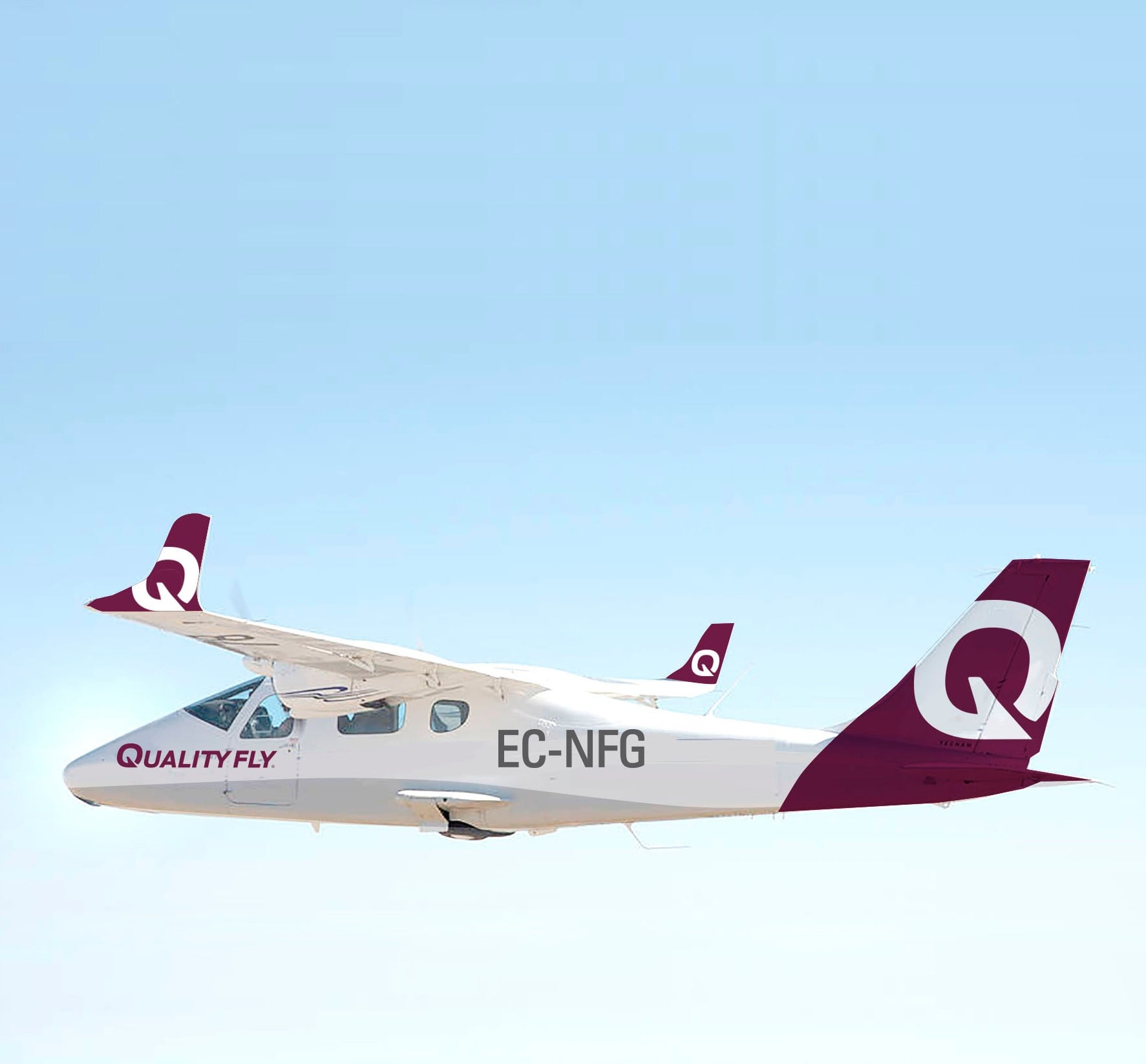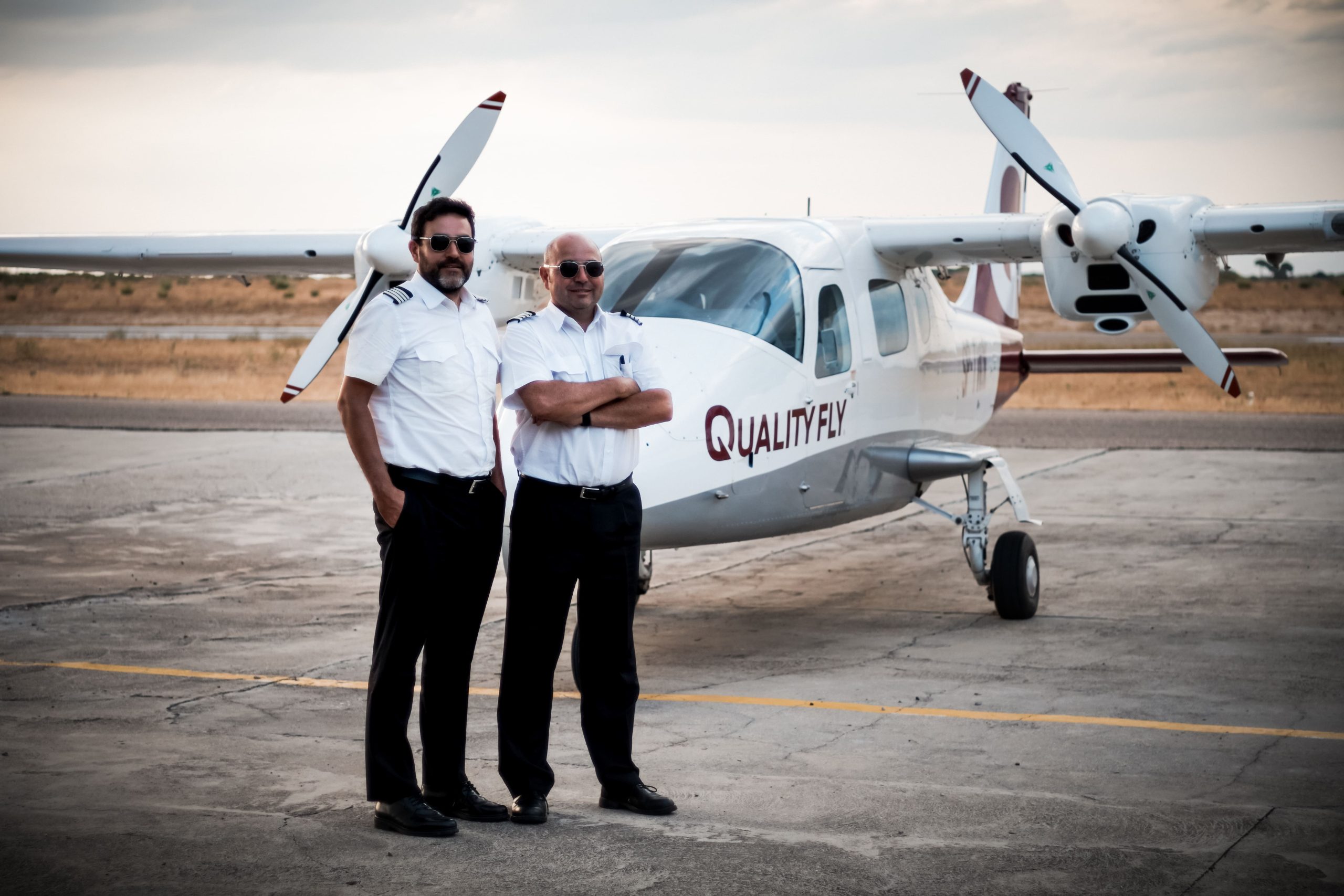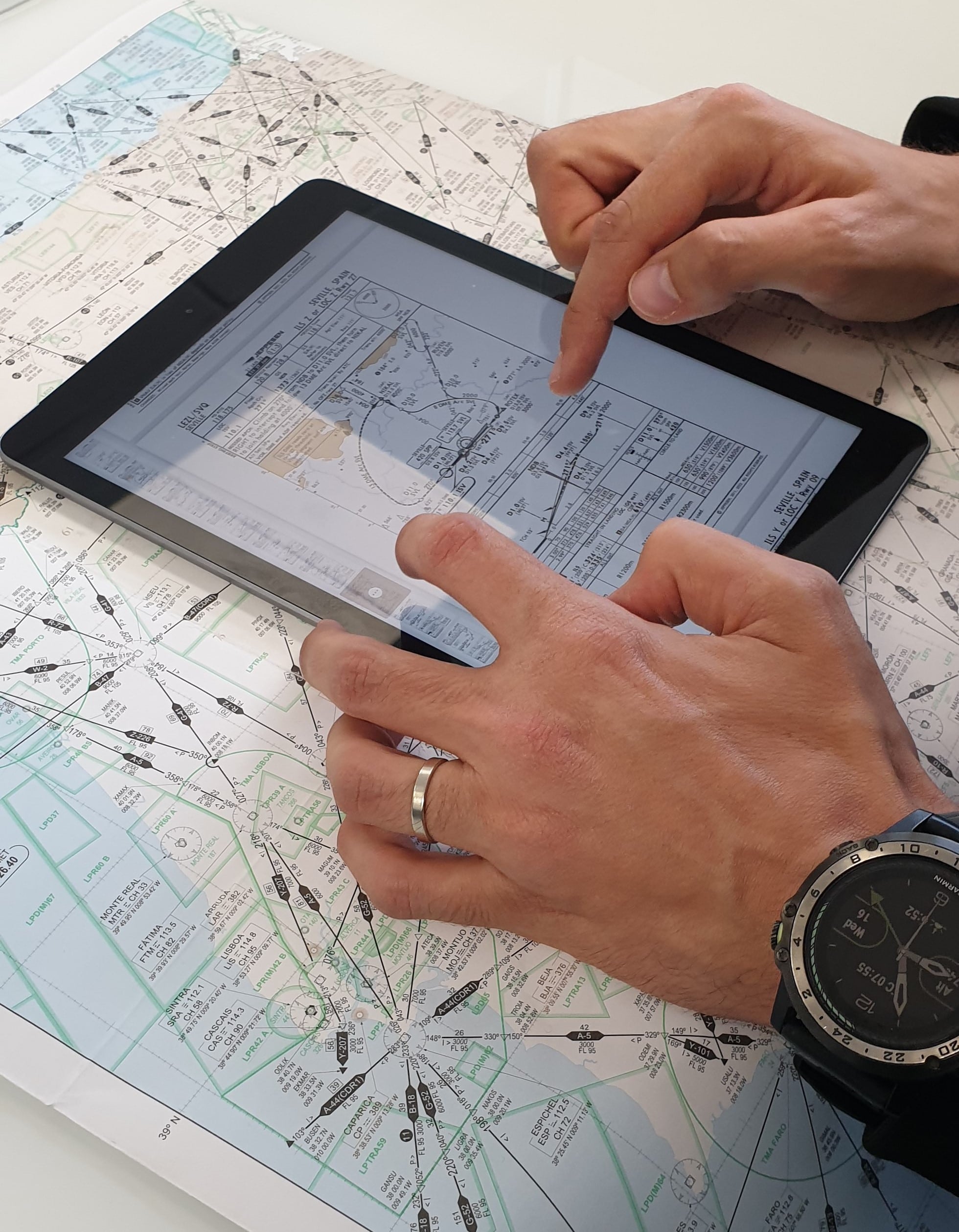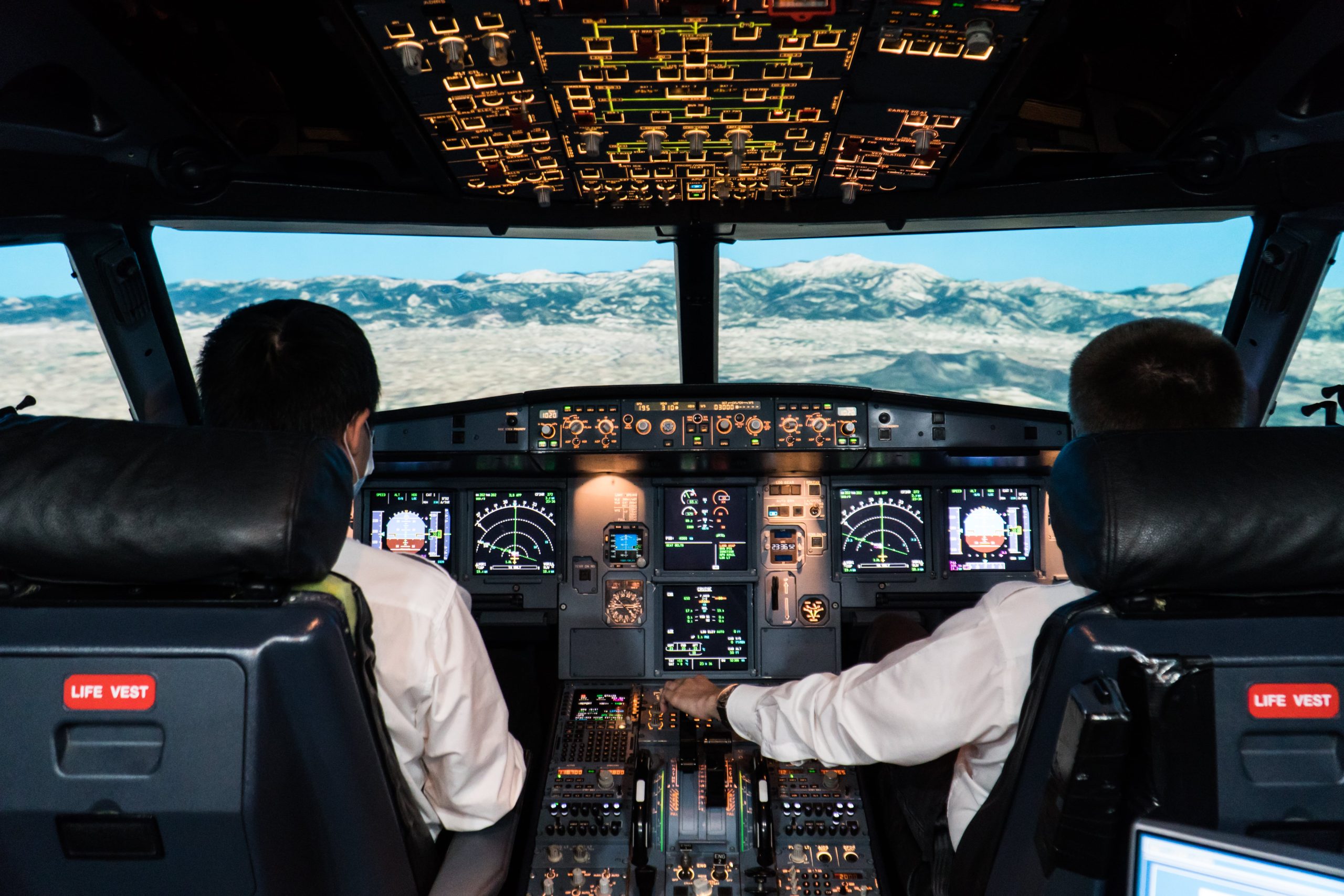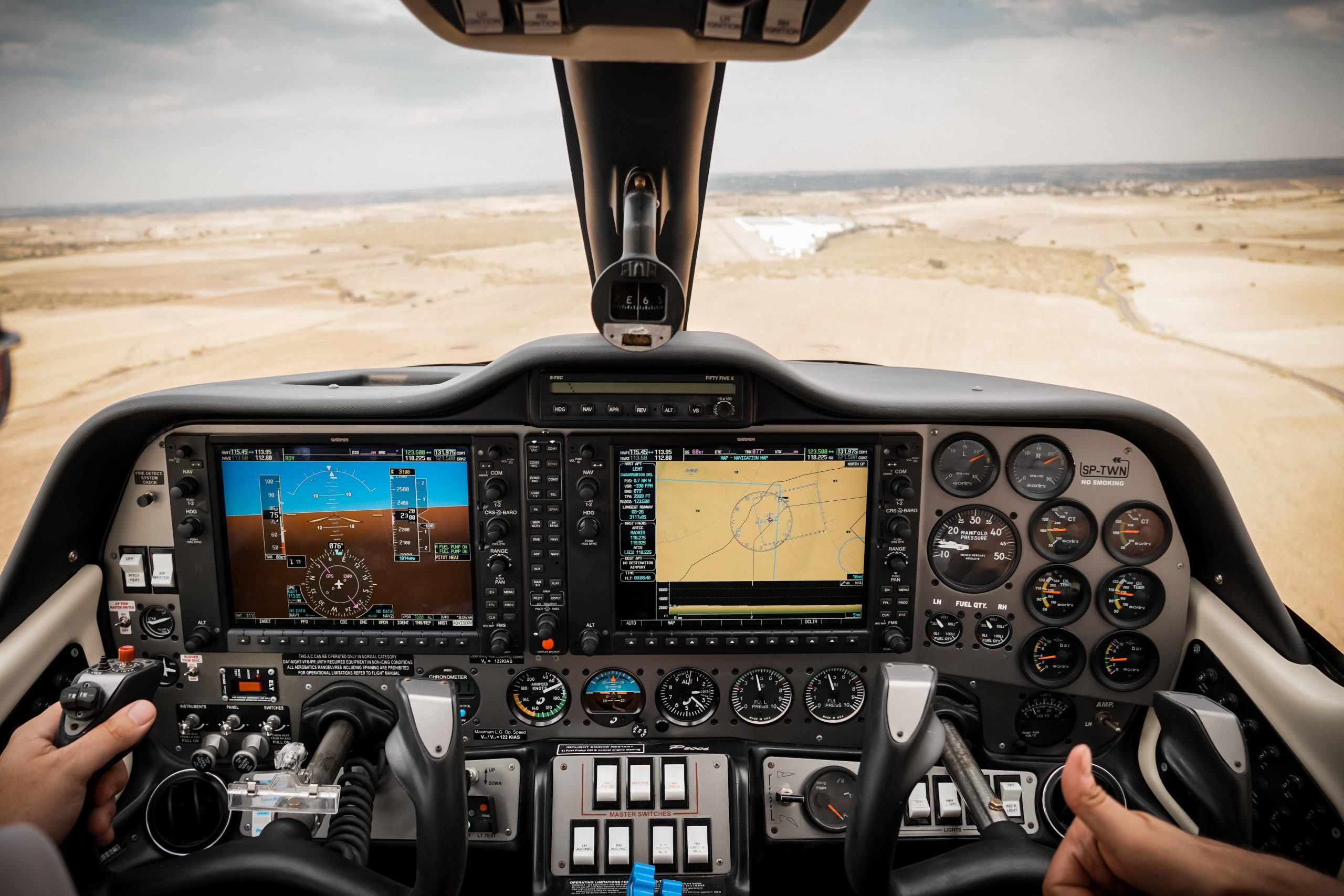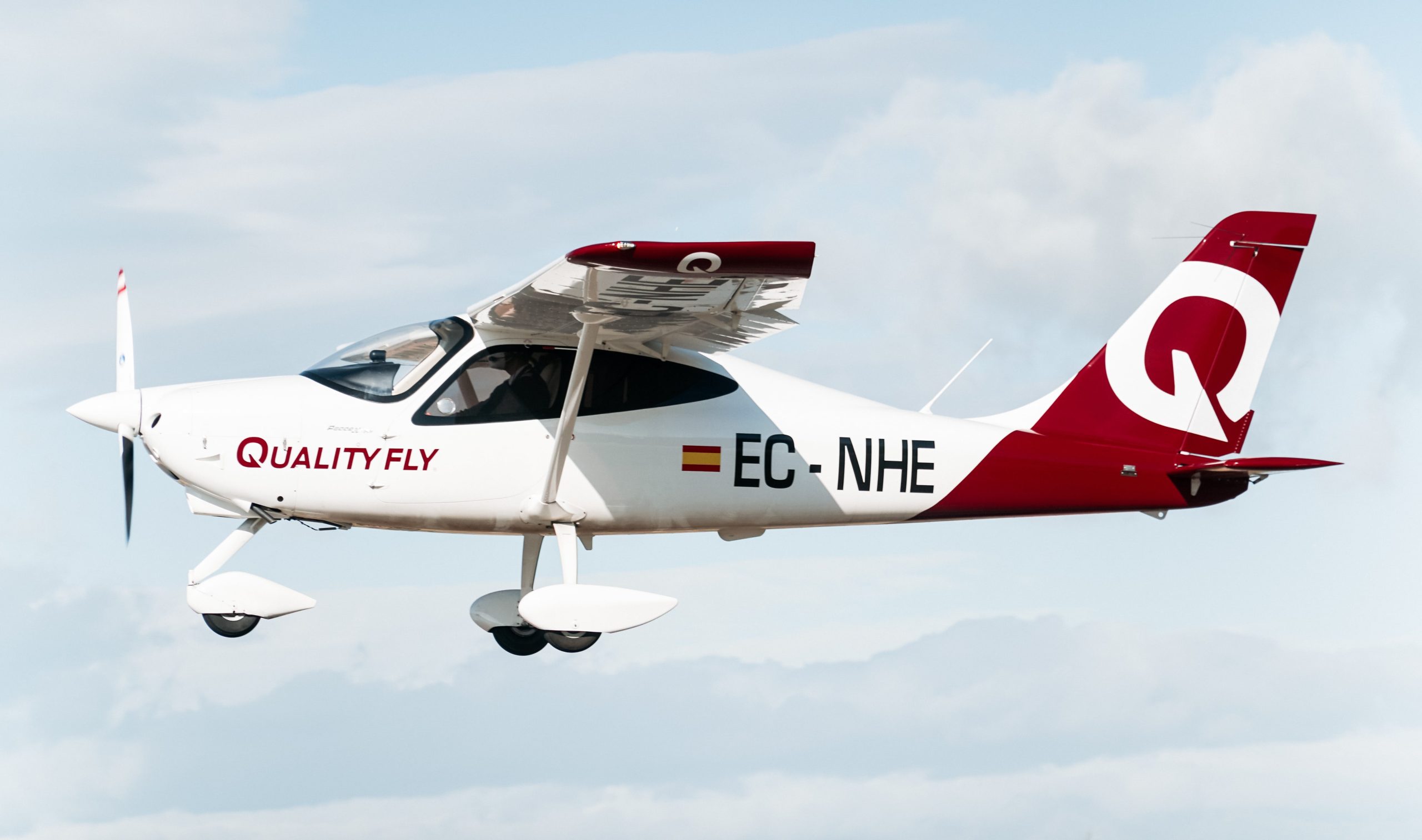School Highlights
Quality Fly is a flight academy based in Cuatro-Vientos airport, Madrid. The academy holds a highly international profile with 100% English training and students of more than 35 different nationalities. Quality Fly is committed to operational perfection with a brand-new fleet, professional management, fully digital processes and effective systems, allowing the school to offer high quality training while maintaining a highly competitive price. The fleet comprises new generation aircraft with glass cockpit for high efficiency and maximum safety.
Quality Fly offers the most innovative and complete ATPL course in European aviation training
The 2022 integrated ATPL program includes elements such as APS MCC with 40 hours in an A320 Full Flight Simulator, Gliding Training and Unlimited Access to a Controlled Training simulator, among others; In total, 220 flight hours, 25 hours above the requirement.
The course has been designed to ensure the highest level of competency to fly in the most demanding airlines across the world and to prepare the students for real-life circumstances; the new program includes not only the latest and future EASA requirements, but innovates including 40 hours APS MCC in an A320 full flight simulator level D, gliding training sessions, unlimited access to a controlled training simulator, night flights in multi engine airplane, career advice, online campus and digitalization of flight preparation.
This innovative training is designed to achieve the highest standards including both technical and non-technical skills, such as: Upset prevention and recovery; Decision making and failure management; Threat and error management; Situation awareness training; Complacency awareness development. Finally, promoting a professional airline environment in terms of demandingness and communications, obliges the student to incorporate senior professionalism and achieve a clear understanding of the pilot role.
All the new developments:
Advanced UPRT – Theoretical and flight training providing flight crew with the required competencies to prevent and recover from abnormal situations in which aircraft unintentionally exceed normal flight parameters, thus improving airmanship.
40 hours of APS MCC in an AIRBUS 320 FFS LEVEL D – The Multi Crew Cooperation (MCC) phase is designed to train pilots in an airline environment. Our APS MCC doubles the hours of a standard MCC, greatly increasing the preparation for an airline simulator assessment. Thanks to its official Airbus Data Package, Full Flight Simulator Level D provides the most realistic recreation of cockpit environment, scenery, aircraft handling, feedback, inertia and behavior, making it feel like a real flight on an AIRBUS 320. It is the only device that enables you to perform important manoeuvres such as Upset recovery, Asymmetric flight or Alternate Law. Other Full Flight simulators might lead to missing out on crucial parts of you training. Quality Fly’s APS-FFS training includes 4 hours more than a typical A320 Type Rating, and fulfills more than 80% of its objectives. It is performed by airline pilots with the highest possible certification: TRI/TRE – Type rating instructors/examiners
Gliding – It is becoming more and more common for airlines to add gliding sessions to their training structures in order to improve handling skills, and thus counteracting automation effect. Quality Fly includes 3 flights of Basic Gliding in their training program, as well as theory classes. This module will allow to experience one of the purest forms of flying, allowing you to perfect your in-flight technique or even discover manoeuvres that will be later practiced in the advanced UPRT. Again, airlines are known for recognizing this type of experience during interviews.
100 – KSA – Standing for Knowledge, Skills and Attitudes, KSA is a “teaching concept” where the ground instructor does not only teach theory, but includes practical lessons and questions relating to each subject.
Controlled Training – Students have unlimited access to a practice simulator preloaded with scenarios based on all six phases of the ATPL program. Each scenario can be repeated until the student has attained the required proficiency. Both aircraft and flight controls are representative of those in the training fleet, as well as the B737 and the A320.
This concept is called “controlled training”, and it is being introduced by airlines such as Ryanair as an extra tool to maintain and enhance pilot competencies.
Night flights in Multi engine airplane – For increased assurance and training quality, the Night Flight is performed in a Twin Engine.
Master & Unlock and end-to-end follow up & tuition – Each phase and its set of skills is only tackled once the preliminary ones are mastered, ensuring that no deficiencies are found in later stages and that students acquire the needed habits. The introduction phase needs to be completed successfully to start flying, internal exams need to be passed before sitting official exams, etc. The needed support is provided to ensure the student has the right progress. Detailed follow-ups are given by the instructors at each stage. Weekly tuition reinforcement sessions are given to ensure all learning is mastered every week.
Courses Offered
Integrated
- EASA Ab initio ATPL
Modular
- PPL · Private Pilot Licence Course
- ATPL Theory Course (ONSITE)
- ATPL Theory Course (DISTANCE)
- NR · Night Rating Course
- ME IR · Multi-Engine Piston / Instrument Rating Course
- PBN – Performance-Based Navigation Course
- CPL · Commercial Pilot Licence
- ADVANCED UPRT · Upset Prevention and Recovery Training Course
- MCC · Multi Crew Cooperation Course
- MCC TO APS MCC · Airline Pilot Standards Multi Crew Cooperation Upgrade Course
- APS MCC (FFS) COURSE · Airline Pilot Standards Multi Crew Cooperation
Additional Training
- FI – Flight <Instructor Course
- MCCI
- IRI
- CRI
- FI UPRT
- Rating Revalidations and Renewals
- ICAO-EASA Licence Conversions
- Aviation English Courses
Aircraft & Simulator
Quality Fly owns a modern and Standarized Glass-Cockpit and 10%-Over-dimensioned Fleet.
Tecnam P2006T – Multi Engine Piston
Tecnam P2008 – Single engine Piston VFR and IFR
Tecnam P2002 – Single engine Piston VFR
Cessna 172S – UPRT
New Generation SIM
ELITE FNPT II PBN Advanced Turboprop
AIRBUS 320 FFS LEVEL D
Approvals & Partnerships
Approvals
- European Union Aviation Safety Agency (EASA)
- Sweden CSN https://www.csn.se/ Approved
- Denmark SU https://www.su.dk/ Approved
Partnerships
GTA – Global Training Aviation is a leading company in the aeronautical training sector. Its philosophy is based on the most innovative instructional methodologies, the standardization of its training and the use of state-of-the-art simulation systems, thus achieving a solid training that values the theoretical part and the practical part in the same way.
FlightLogger – Working with more than 135 flight training organizations in 44 countries, FlightLogger is known as the most innovative digital platform for flight training management. Ease of use, great support, and an impressive feature set, tailored for flight training operations make the Danish software stand out from other solutions.
Entry Requirements
Admission Pre-Requisites
- English language equivalent to ICAO Level 4
- Valid EASA Class 1 Medical Certificate
- 17+ years old
- High School certificate.
Bachelor’s and Master’s degrees are not required but will be valued as they also will be by airline companies. Exceptions may apply, but an additional exam is required.
ATPL Entry Requirements
Step 1
SUBMIT YOUR APPLICATION
Aimed at evaluating your basic skills, psychometric skills, general knowledge personality and motivation as per EASA regulations but, more importantly, to help you gain insight and decide on whether pursuing a career as a pilot is right for you.
Step 2
IQ/EQ TEST + COACHING INTERVIEW
In this phase, you will take a computer-based test allowing us to determine your IQ and EQ (intelligence and emotional quotients) plus a short coaching interview (*) with an aviation expert to assess readiness to pursue a career in aviation.
(*) If you are a non-native English speaker, this interview will also test your ability to speak and understand English at the required level.
Step 3
INTERVIEW
If you are selected, you will be invited to an admissions interview with our Head of Training where we will evaluate your degree of commitment and you will have an opportunity to ask for any remaining questions on the programme.
